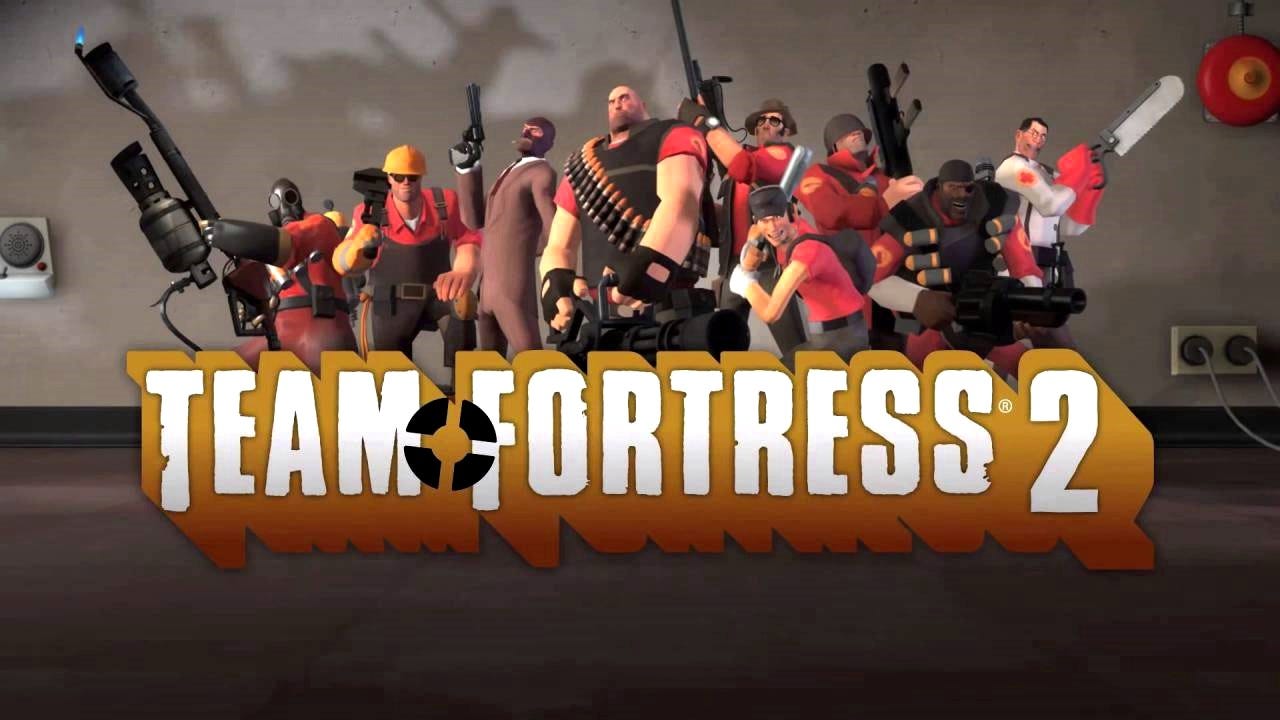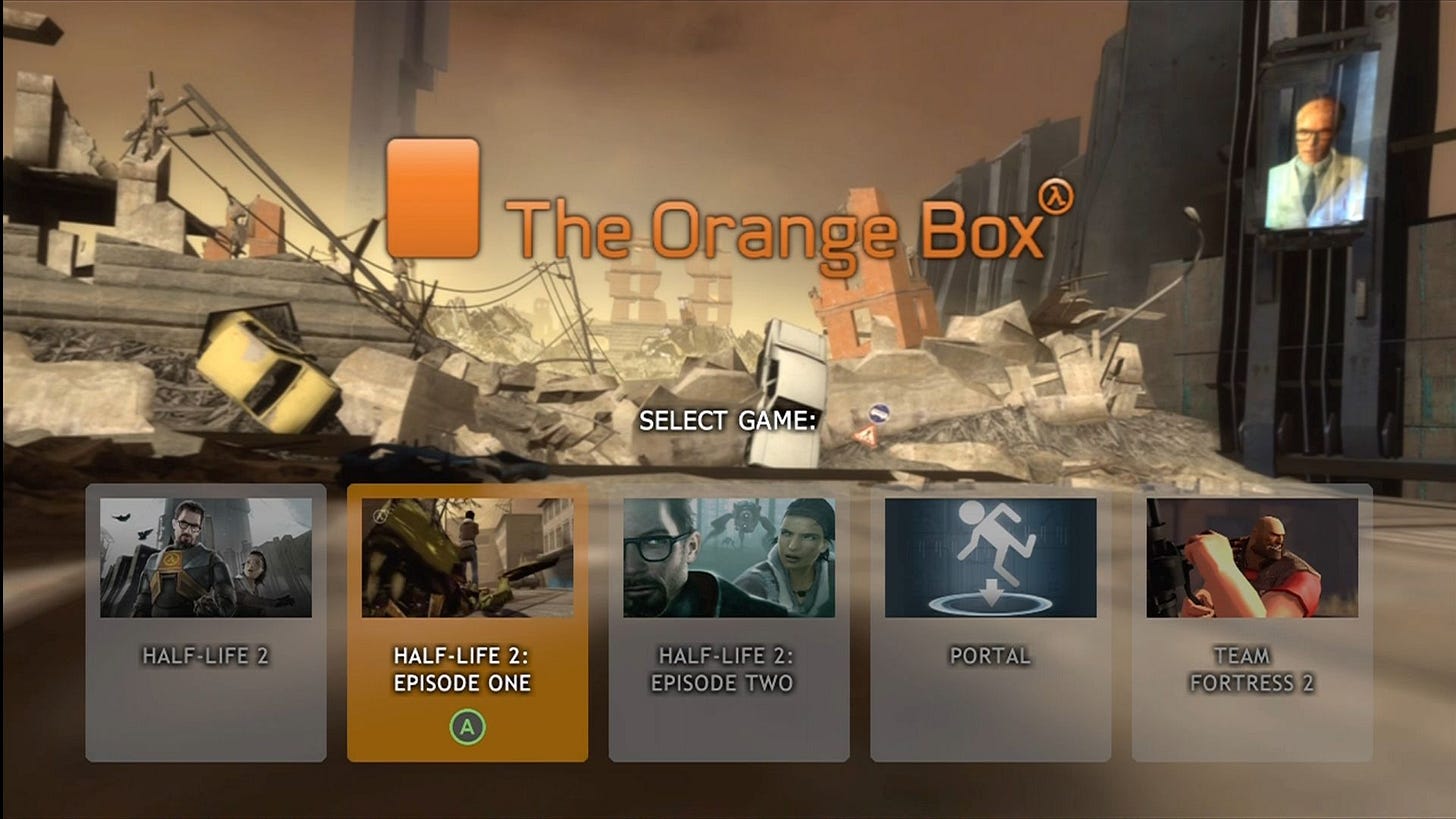A Love Letter To The Game of My Childhood: Team Fortress 2

February 2009. After much saving, price-hunting, waiting, and bothering my parents, I finally am able to convince my parents to split the costs of an Xbox 360 with me. This marks a transitional period of my life: prior to this point, I'd solely played games on Nintendo consoles. The Xbox 360 marked the point where I left Nintendo's walled garden and could begin to explore the wide world of video games as a whole. And, boy, I had some catching up to do.
My first game purchases were a greatest hits collection of a console that was already experiencing its first major Golden Age, and as a child who would watch G4 while home alone on summer vacation, I knew what games I needed to pick up. Fallout 3 was my first purchase, followed closely by Mass Effect and The Elder Scrolls IV: Oblivion. As my wallet began to empty (how did I have so much spending money at age 13?), I knew that the games I was buying needed to be able to fill a lot of time. Open world games like Dead Rising and Assassin's Creed were good choices, but I also remembered a deal unlike other: 5 games, each critically praised as masterpieces, bundled together. The Orange Box.
The Orange Box as a disk defined my adolescence. I can't even count the number of times I've beaten Half Life 2, but it's somewhere over a dozen. Portal is a masterpiece that has since been immortalized on countless "Best Games Ever" lists, but the game that I sunk the most time into was on the far right of the main menu:

Team Fortress 2 was far from my first experience with multiplayer shooters; my friends used to meet up to play Halo at each others' houses all through middle school. However, something about that game enraptured me unlike any other. The characters in the game had developed personalities, ones that were expressed in their gameplay (we were a good way into the Meet The Team video series by this point in time). Characters had distinct playstyles, allowing for the game to become totally different for the player just by changing classes. Most crucially of all, however, was a simple fact: games were long.
A single game on 2Fort could easily take upwards of an hour, and while there were certainly moments of tension as teams would take turns attempting to raid the enemy fort or batter down ridiculous defenses, there was also plenty of down time as players just sort of goofed off. Your Spies were in the sewers trying not to get caught, your Snipers locked in a pissing contest to see who could headshot each other the most, your Engineers just thwackin' away at their turrets. You had time to kill.
In this time, because I was a stupid teenager, I'd get on voice chat and talk to the people in game. Normally, these interactions were, to use a modern term, completely cancerous, with people just yelling obscenities, but occasionally you'd meet some cool people, and just hang out and have fun. I met a group of people like this, and ended up joining their regular gaming group, a set of people who would just get on Team Fortress 2 together and just goof off. Sometimes we'd play seriously, and sometimes we'd hop back on 2Fort and just mess around.
I think this experience was extremely positive for me. To say nothing of positive social interaction's benefit on a young dweeb kid, it taught me how much fun can be had playing games in a social manner. If you look at that list of games that I'd bought for my 360 prior to The Orange Box, there's a commonality: they're all single-player games. While I'd played Halo with my friends, that was almost always in a strictly competitive mindset. Even if playing something like Team Deathmatch, that was, in essence, a free-for-all where you aren't allowed to shoot half of the people. Team Fortress 2 showed me how much fun it could be to form a cohesive team, to devise terrible strategies and watch them fail miserably, to learn a game's secrets from your friends and to pass on secrets of your own.
Team Fortress 2 was built, from the ground up, to allow for this. Each character is both so mechanically distinct from one another, and so specialized, that it makes it really easy to develop brand new strategies just by forming novel configurations of classes. Each class had its subtle nuances that only veteran players of the class would know, like the various tells that could give away a Spy's disguise, the best places to set up Engineer turrets, or the precise mechanics of stickybomb jumping as the Demoman. By having each class be so deep, it encouraged people to explore the classes and learn those secrets, and it made figuring them out make you feel like a wise old sage full of forbidden wisdom. You had traveled to the peak, and from the voice of the wind itself, only you had learned the secret of how to make the Spy walk all weird.
This was the equivalent to knowing a secret Mason handshake
The magic to Team Fortress 2 wasn't recaptured for me by very many other games. Valve's own Left 4 Dead series managed to recapture that feeling of mastery, as I have blogged about previously, and Overwatch has as well, while also featuring that possibility space of strategies that's fun to explore. However, Team Fortress 2 had both that easy-to-learn, hard-to-master complexity and the large strategic possibility space, but also had a design that encouraged low-stakes play, allowing for genuinely fun social spaces to emerge, and for players to really just have fun doing dumb things and seeing if they worked without wasting precious seconds of a short timer, or throwing the entire team back to the start of a level.
That's the shining core of Team Fortress 2 for me. The part where you take all of the experience you have playing the game, and apply it to a game with innumerable strategic possibilities, and attempt to generate the most moronic strategy conceivable. While I'm sure I had plenty of well-executed strategies in my time of playing TF2, the moments I remember are 12 man Scout rushes, are moments where as a Spy I was in so deep I was participating in the other team's raids on my base, and attempting to set up an Engineer's turret deep into an enemy base. When these moments worked out, they felt like an expression of game mastery, like I was bending the mechanics to my will. When they didn't, I was laughing at how stupid the idea was in the first place.
This, the ability to be dumb, is what makes Team Fortress 2 a masterpiece in my eyes.